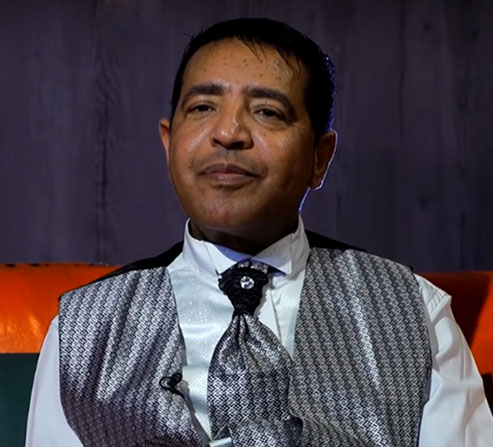
Agenda | Mar 30,2024
Jan 11 , 2020
By GELILA SAMUEL ( FORTUNE STAFF WRITER
)
Tourists will pay certain amount on top of visa fee.
A new bill that will introduce an ecotax, a tax levied on activities considered harmful to the environment, is in the making.
Drafted by the Environment, Forest & Climate Change Commission, the bill has been in the making for the past five months and is expected to be tabled to the Council of Ministers this week. It will form the Eco-Fund, which will be reporting to the Prime Minister and will be tasked with administering the funds collected through the scheme. The Fund will be treated separately and be used for environmental protection.
Dubbed the Eco-system Service Payment, the proclamation is aimed at promoting environment-friendly activities through economic incentives. It will collect funds in two ways: through a green tax and an eco-system service fee; both will be treated separately with two new directives that will follow the legislation of the proclamation.
The green tax mainly targets pollutants that affect the environment in different ways and the collected taxes will be directed to environmental rehabilitation. It will be imposed on fossil fuels, petroleum, mining and the usage of pesticides, among others.
An eco-system service fee will be imposed on companies and service providers that base their business on natural resources. It is applied with a baseline contract to be signed with these businesses to make them contribute to the preservation and conservation of natural resources. It applies to national parks, water bottlers, private or public dam owners, genetic resources, and businesses in the tourism sector.
For the baseline contract, the companies will sign an agreement with regional authorities where they operate. They will also negotiate the fee. The funds to be mobilised from them will be used to maintain the flow of water, increase plantation coverage, and assist communities that are prone to flooding.
Tourists coming to the country will also be subjected to a fee, which will be set by a new directive that will be issued after the proclamation. The contribution will be included with the visa fee.
It intends to address the sustainability of natural resources, mitigate the externalities caused by pollution, and develop a new paradigm to invest in rehabilitation, according to Ayele Hegena (PhD), director general for policy, law and standards research development at the Commission.
“This kind of internalisation of external costs will lead to the re-allocation of the resources, which will increase social welfare,” Ayele toldFortune.
The Office of the Attorney General, which checked whether the bill overlaps or contradicts with other laws, reviewed the proclamation last week and forwarded it back to the Commission with some comments.
In managing the mobilised resources, the Commission will be assisting the Eco-Fund on the technical issues as a lead agency. A streaming committee, which is composed of industry players such as water bottlers as well as private or public dam owners, and government offices, will be formed to assist the Fund on general issues and act as an advisory body for the Prime Minister.
Before drafting the proclamation, the Commission formulated a strategy and action plan for polices to strengthen environmental sustainability with funding from the Global Environment Facility managed by UNDP. The strategy design process took close to eight months.
Along with the Commission, the ministries of Water, Irrigation & Electricity, Culture & Tourism, Mines & Petroleum and Agriculture are involved in the process. The Ethiopian Wildlife Conservation Authority and the Ethiopian Biodiversity Institute also took part in the process.
Mekete Bekele, an assistant professor at Addis Abeba University's School of Law & Governance, appreciated the bill for introducing a new and vital approach to mitigating the environmental issues.
"It matches tax policy to expenditure policy,” Mekete said, adding that the contributions will help the country build its self-reliance rather than seeking foreign funds.
For the policy implementation on the ground and making the system efficient, Mekete recommends the government work on capacity building.
However, industry players claim that they were not part of any consultation during the drafting process of the new bill.
"We heard nothing about the proclamation," said Ashenafi Merid, president of the Bottled Water & Soft Drinks Manufacturing Industries Association. "We weren't even called for a consultation."
PUBLISHED ON
Jan 11,2020 [ VOL
20 , NO
1028]

Agenda | Mar 30,2024

Radar | Feb 15,2020

Fortune News | Dec 16,2023

Fortune News | Jun 07,2025

View From Arada | Apr 03,2021

Dec 22 , 2024 . By TIZITA SHEWAFERAW
Charged with transforming colossal state-owned enterprises into modern and competitiv...

Aug 18 , 2024 . By AKSAH ITALO
Although predictable Yonas Zerihun's job in the ride-hailing service is not immune to...

Jul 28 , 2024 . By TIZITA SHEWAFERAW
Unhabitual, perhaps too many, Samuel Gebreyohannes, 38, used to occasionally enjoy a couple of beers at breakfast. However, he recently swit...

Jul 13 , 2024 . By AKSAH ITALO
Investors who rely on tractors, trucks, and field vehicles for commuting, transporting commodities, and f...

Oct 4 , 2025
Eyob Tekalegn (PhD) had been in the Governor's chair for only weeks when, on Septembe...

Sep 27 , 2025
Four years into an experiment with “shock therapy” in education, the national moo...

Sep 20 , 2025
Getachew Reda's return to the national stage was always going to stir attention. Once...

Sep 13 , 2025
At its launch in Nairobi two years ago, the Africa Climate Summit was billed as the f...